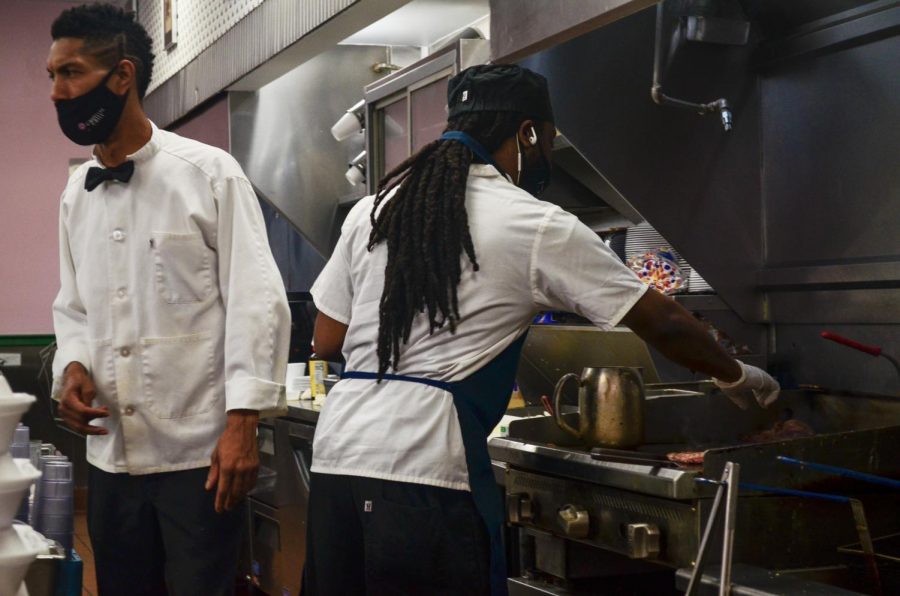Loyola law project receives grant to address workplace inequity
Employees of Camellia Grill work in the open kitchen of the restaurant on S Carrollton Ave. Loyola’s workplace justice project make economic resources available to service workers in the city. Photo credit: Gabrielle Korein
February 24, 2021
The Workplace Justice Project at Loyola’s law school has received a three-year research grant from the W.K. Kellogg Foundation, according to a press release from the university.
The project helps to improve economic security for those that work for low wages in three ways: legal representation on behalf of workers, advocating for equitable policy change, and educating workers on their rights, according to Erika Zucker, policy advocate for the Workplace Justice Project. This $450,000 grant is the third one the Workplace Justice Project has received from the Kellogg Foundation, according to the university’s press release.
“Every grant that we have sought is, in fact, a step further toward a goal of economic equity, racial equity,” said Luz Molina, director of the workplace justice center and law professor.
The Kellogg Foundation’s purpose is to create conditions that help vulnerable children succeed, according to its website. The grant funding will help support the project its work for economic equity.
“While our policy solutions don’t only address issues that affect poor people, the point of most of our work is to make sure that it is providing economic security, hope, and greater equity to the people that are, and have been, at the bottom, always for economic means and primarily for racial means as well,” said Zucker.
Molina stressed that economic equity is linked between criminal justice, housing, education, transportation, health and work.
“Our project works on work issues, but then we have to be linked collaboratively with all these other organizations,” said Molina, “This is such a big step for us to now become part of this larger community working towards that change,” said Molina.
The Workplace Justice Project was founded as a response to Hurricane Katrina in December 2005 to help mostly immigrant low-wage workers with issues such as wage theft and safety issues, according to Zucker.
“Out of the experiences of these workers who were being abused in some instances came the realization that almost all low-wage workers have very difficult barriers to overcome,” Molina said.
Molina, who has been the director of the Workplace Justice Project since she founded it 16 years ago, said she has dedicated her career to serving vulnerable communities through her practice of law.
“I think that social justice, and even just the sheer notion of justice, is really important to me personally,” said Molina, “Law, for me, has been the tool to manage that need to serve others in the community.”








